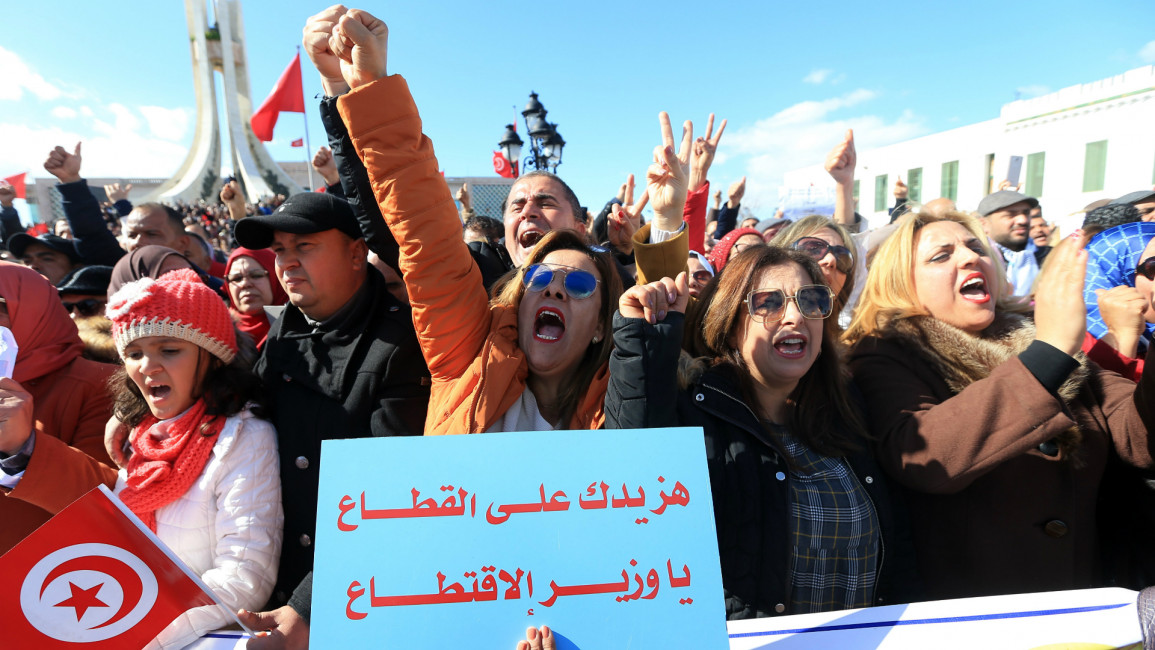Tunisia teachers protest after months on strike
The demonstrators, heeding calls to protest by the country's powerful UGTT trade union confederation, gathered in the centre of Tunis to call on Education Minister Hatem Ben Salem to step down.
"Get out" and "the solution is resignation", the teachers chanted.
The protest was the latest in a stand-off ongoing since 2017 between Salem and the secretary general of Tunisia's secondary school teachers' union, Lassaad Yacoubi.
Strikes since October have hit Tunisian schools hard, as many teachers have failed to conduct first term exams or give grades.
The strikes - which call for early retirement, bonuses and better conditions in schools - have continued despite calls by the UGTT to return to regular classes.
Without exams, students fear they may have to repeat the school year. Students and parents have themselves protested in recent weeks.
"We are ready for serious negotiations and the signing of an agreement," said Yacoubi, head of the teachers' union.
"The question of a blank year (for students) is the government's responsibility," he added.
The protest, organised during a school holiday, comes just weeks ahead of a planned public sector strike called for by the UGTT on February 20 and 21.
It would be the third mass strike in a matter of months against the government and reforms dictated by the International Monetary Fund.
In 2016, the IMF granted Tunisia a 2.4-billion-euro loan (the current equivalent of 2.7 billion dollars) in exchange for a promise to carry out economic reforms and to control civil service salaries.
Despite a relatively smooth democratic transition after the 2011 fall of President Zine El Abidine Ben Ali, Tunisian leaders are struggling to tackle stubborn unemployment and high inflation.



